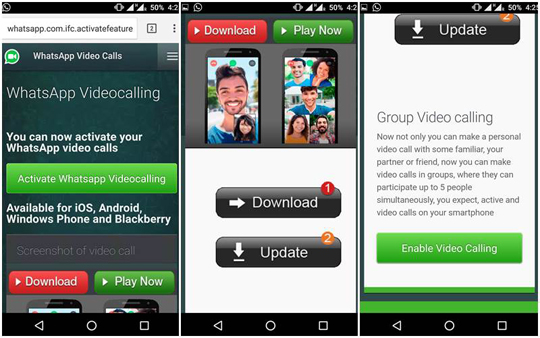Nov 20: WhatsApp rolled out video-calling feature for Android, iOS and Windows users earlier this week. The feature was long anticipated and can be downloaded via update available to all users. However, the rollout of this popular feature has led to scamsters circulating malicious links inviting people to download video-calling.

Interestingly, these links also invite users to download group-calling feature, something that WhatsApp itself hasn"t made official yet. The malicious link reads, “You"re invited to try WhatsApp Video Calling feature. Only people with the invitation can enable this feature.” Click on the link and it will ask you to invite more friends for video-calling to activate on your device.
However, we"d like to warn you not to fall prey to these scams. There"s always the risk of scamsters gaining access to your personal contacts, mails, documents etc. While WhatsApp did introduce an invite system for activating its voice-calling feature last year, the company is going with a simple update for video-calling. However, looks like scamsters took note of WhatsApp"s earlier move to fool people in to clicking on malicious links this time. To recall, the update is automatically available to Android, iOS as well as Windows users via respective app stores.
Typing similar URLs such as "whatappvideostart.com" takes you to a WhatsApp look-alike website, making it easy for people to believe its not a fake. The site resembles WhatsApp app in terms of interface and design. Also, the colour scheme of the website is similar to that of WhatsApp app. The site has also put out screenshots of the video-calling feature to make users believe it is authentic.
WhatsApp announced video-calling feature for all users on November 15. India remains an important market for Facebook-owned WhatsApp with close to 160 million monthly active users in the country. According to WhatsApp, they saw over 8 million messages going out on the day of Diwali in India alone. WhatsApp was launched in 2009 as a rich messaging service and is now one of the world"s largest OTT messaging platforms with over 1 billion users. The addition of video-calling to its platform is expected to boost user engagement.





Comments
Add new comment